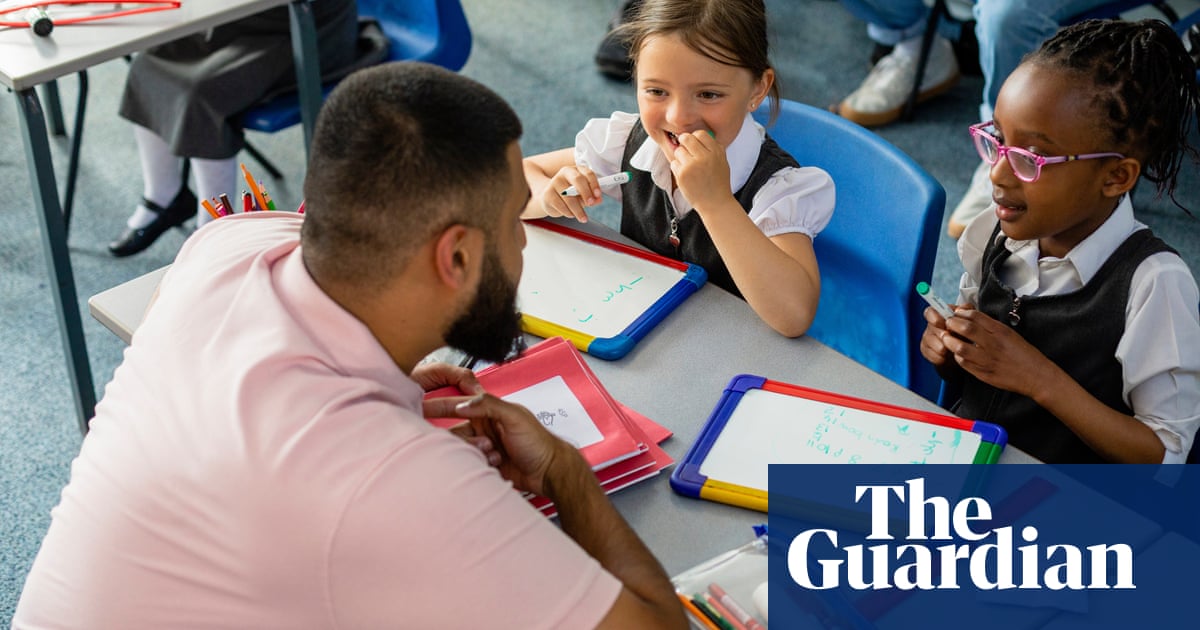Parents who have been working from home since the pandemic are keeping their children off school with them, the chief inspector of Ofsted has suggested.
Sir Martyn Oliver, who has launched his first annual report on education and children’s social care in England, said the trend could be seen in lower attendance figures on Fridays.
Staying at home at the end of the week appears to be part of a wider trend of “unorthodox schooling” since the pandemic, which includes part-time timetables and hybrid learning.
Oliver’s report said education had become “fractured and fragmented for too many children”, while pupil attendance remained a “stubborn and damaging issue” after the Covid-19 lockdowns.
In an interview shortly before the report was published on Thursday, Oliver said parents working from home had contributed to the issue of school absences.
“Pre-pandemic, we used to notice as headteachers and teachers that if parents did work from home they would send their children in,” he told Good Morning Britain.
“But now post-pandemic we also see parents are working from home and sometimes they keep their children off with them. We notice that because on Fridays attendance tends to go down more than any other day.”
When asked about attendance,Oliver said pandemic lockdowns and the “phenomenon” of home working was having an impact on pupil absences.
“We went into a lockdown period where children were told not to go into school and were actually told to go on to their screens and use their mobile phones, and then suddenly we go back, and when it comes back, it’s like ‘Now come off your screen’ – the thing we’ve actually just asked you to be on for the best part of two years.”
The annual report fleshes out these concerns, citing the growing number of children “whose pattern of education is disjointed” since the pandemic.
Flexi-schooling – where parents home-educate their children for part of the week – was “on the rise” across England, Oliver said.
Pupils with special educational needs and disabilities (Send) and behavioural needs were also “increasingly” receiving a mix of online and in-person lessons, he said.

Ofsted’s annual report – which reflects on the state of education and children’s social care in the last academic year – also estimated that 34,000 children were on part-time school timetables, where pupils attend school for part of the week and spend the rest of the time at home.
Department for Education (DfE) guidance says part-time timetables should be used only in “very limited circumstances” and should not be used to manage a child’s behaviour.
“The spread of part-time timetables suggests they are becoming more readily used, which cannot be good,” Oliver warned.
Along with the tens of thousands of children who are home-educated – and an unknown number attending unregistered schools – there was a “very significant number of children who have, one way or another, been opted out of more orthodox patterns of education.”
after newsletter promotion
Ofsted’s report highlighted that attendance issues had “deepened” since the pandemic, and disadvantaged children were more likely to miss class.
Nearly one-fifth (19.2%) of pupils in England were “persistently absent” – missing at least 10% of school sessions – in autumn and spring last academic year, government figures show.
This is higher than the pre-pandemic rate in the autumn and spring terms of 2018-19 (10.5%).
“There has been a shift in attitudes since the pandemic lockdowns,” the report states. “The expectations of school attendance are now viewed more casually. With working from home now firmly established for many parents, the old family routines have been loosened.
“It’s perhaps unsurprising that the absentee rates for Fridays outstrip the other days of the week.”
Oliver took over as Ofsted’s chief inspector in January when the watchdog faced criticism after the death of the headteacher Ruth Perry.
Perry killed herself after an Ofsted report downgraded Caversham primary school in Reading from the highest to the lowest rating over safeguarding concerns.
A coroner concluded the Ofsted inspection in November 2022 had contributed to her death.

.png) 1 month ago
17
1 month ago
17













































